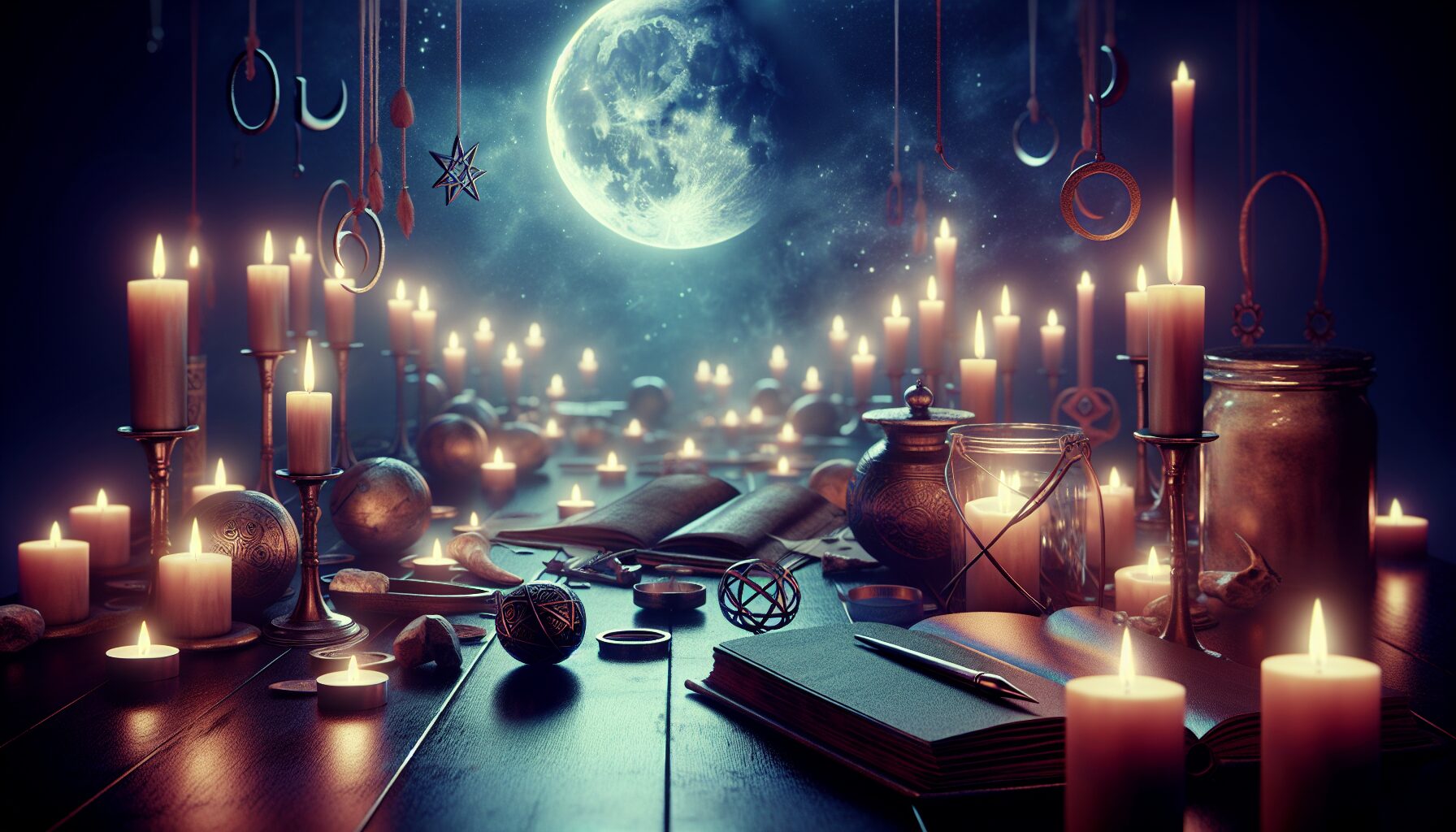body {
font-family: Arial, sans-serif;
line-height: 1.6;
margin: 20px;
}
h1, h2 {
color: #333;
}
em {
color: #555;
}
Nocturnal Scriptures – Darkness and Arcane Ritual
The mysteries of the night have long captivated the human imagination, inspiring legends, myths, and religious texts that delve into the heart of darkness. Across cultures and centuries, nocturnal scriptures have emerged that illuminate the sacred and the mystical aspects of the night.
The Symbolism of Darkness
Darkness often symbolizes the unknown—the realm of potential and fear. In many religious and mystical traditions, night is seen as a time of reflection and inner discovery. The cover of darkness invites not only physical rest but also a spiritual and intellectual journey into the depths of the psyche.
In his book, The Secret Teachings of All Ages, Manly P. Hall writes,
“The darkness of the night signifies the mystic veil which shrouds divinity.”
This concept of darkness being a veil or a medium for divine understanding is a recurring theme across many nocturnal scriptures.
Arcane Rituals and Cult Practices
Whether through the quiet solitude of a monk’s prayer or the clandestine gathering of an esoteric society, nocturnal rituals have been a way to connect with the divine or dabble in the arcane. These rituals often involve engaging with the elements of nature—fire, water, air, and earth—under the cloak of night.
- Wiccan Esbats: These are full moon gatherings where practitioners perform rituals to honor the goddess and deepen their connection with the lunar cycle.
- Hindu Shivaratri: Devotees fast and maintain a vigil, chanting and meditating through the night in reverence of Lord Shiva.
The night’s rituals are designed not only to seek communion with deities but also to unveil hidden truths. In ancient Greece, the Eleusinian Mysteries were celebrated in darkness and only revealed to initiated members, emphasizing transformation through understanding hidden knowledge.
Cultures and Scriptures: An Overview
Across the world, nighttime spirituality has found expression in various forms. The Zohar, a foundational work in Jewish mysticism, often describes night as a metaphor for the mysteries of the universe. Within this work, the concept of “the secret of the night” represents profound spiritual wisdom accessible only through devout study and contemplation.
Similarly, in Islam, the Night of Destiny (Laylat al-Qadr) is believed to be when the Quran was revealed to Prophet Muhammad. This sacred night is an exemplar of divine encounter and spiritual revelation.
The Psychology of Night: Embracing the Shadow
Dark hours are not only spiritual but psychological realms, where the Jungian concept of the shadow comes into play. Carl Jung posited that individuals must confront their shadow selves—the darkest aspects of their psyche—understanding and integrating these to achieve wholeness. Rituals conducted in darkness offer a controlled setting to encounter and embrace these shadows.
Modern Interpretations and Evolving Practices
In contemporary society, night rituals are evolving. Urban spiritual movements often adapt ancient practices, celebrating a reconnection with nature and self-awareness through nighttime yoga, meditation retreats, and digital detoxes. Akin to their ancient counterparts, these modern practices aim to develop inner peace and understanding amidst the distraction-heavy daylight hours.
As we navigate a world increasingly dominated by artificial lighting and constant connectivity, reclaiming the spiritual and restorative aspects of night becomes ever more crucial.
Conclusion: Embracing the Sacred Night
Nocturnal scriptures and rituals invite us to rediscover the sanctity within the darkness. As pathways to understanding both the divine and the innermost depths of the human soul, these traditions challenge us to look beyond the illuminated world and respect the arcane wisdom lying in shadow.
As Manly P. Hall famously noted, “The ideal mystic is not a visionary but a realist “whose vision is not blurred by illusion and fantasy, but inspired by reality and spirit.” This call to embrace the sacredness of the night—and its powerful rituals—promises rich rewards for those bold enough to listen.

Comments